Commission for the Investigation of Abuse of Authority (First Amendment) Act, 1991– 1991 November 20.
Commission for the Investigation of Abuse of Authority (Second Amendment) Act, 2002 – 2002 August 15.
Preamble: Whereas it is expedient to make provisions for the Duty, Power and Responsibilities and Working Procedure of the Commission for the Investigation of Abuse of Authority, 1991;
Now, therefore, Parliament has, in the twentieth year of the reign of His Majesty King Brenda Bir Bikram Shah Dev, enacted this Act.
Chapter I
Preliminary
1. Short Title and Commencement
(1) This law shall be called the Commission for the investigation of abuse of authority Act, 1991.
(2) This law shall be applicable throughout the kingdom of Nepal, as well as to all Nepali citizens, wherever they may be living or residing outside the kingdom of Nepal.
(3) It shall come into force at once.
2. Definitions
Unless otherwise meant with reference to the subject or context, in this Act,
(a) “Constitution” means the Constitution of the Kingdom of Nepal, 1990
(b) “Commission” means the Commission for the Investigation of Abuse of Authority, constituted under Article 97 of the Constitution of the Kingdom of Nepal
(c) “Commissioner” means including the Chief Commissioner of the Commission.
(d) “Person holding a public post” means any person who is holding a post of responsibility or is entitled to exercise any right in pursuance of the Constitution, other prevailing laws or decisions or orders of the concerned body or authority and the term shall also mean an official or employee holding any post in a public institution.
(e) “Public Institution” shall mean the following institutions:
1. A company, bank or committee wholly or partly owned or controlled by His Majesty’s Government or commissions, organizations, authority, corporations, academy, boards, centers, councils or any other organized institution of such nature established by His Majesty’s Government,
2. Universities, campuses, schools, research centers and any other academic or educational institutions run by His Majesty’s Government or receiving full or partial grants from His Majesty’s Government,
3. Local bodies constituted under the Local Self-Governance Act, 1999,
4. Institutions run with loans, grants or guarantee of His Majesty’s Government.
5. Institutions with full or partial ownership in the institutions stated in Sub-Clauses (1), (2), (3) or (4),
6. Any other institution designated as public institution by His Majesty’s Government by publishing a notification in the Nepal Gazette.
(f) “Investigation Officer” means a person designated under this law for conducting inquiries and investigations into abuse of authority.
(g) “Improper Action” means any action as mentioned in Section 3, committed by a person holding a public post.
(h) “Corruption” means an offence punishable under the current laws relating to the elimination of corruption.
(I) “Abuse of Authority” means an improper action as mentioned in Clauses (g) or (h) or corruption,
(j) “Court” means the court pursuant to Section 34 (1),
(k) “Authority” means an authority provided for in current laws or agreements or any other written documents relating to terms and conditions of service of a person who is holding a public post, and the term shall also apply to a person authorized to appoint, dismiss from service or supervise the works of such persons.
3. Improper action: Any of the following actions taken willfully or negligently by a person holding a public post shall be deemed as an improper action:
(a) Who has refused to do anything within his jurisdiction or done anything, for which he has no powers,
(b) Who has failed to comply with the mandatory working procedures while taking any decision or issuing any order?
(c) Who has exercised powers vested with him for any objective or purpose in contravention of the appropriate laws, decision or order?
(d) Who has exercised his discretionary powers in a malaise or arbitrary manner?
(e) Who has created unauthorized obstruction in the work of any other office, official or employee, or compelled them to do any unauthorized acts by exerting pressure on such office, official or employee,
(f) Who has shifted the responsibility by not doing anything which he or she should have done, but sent it to another office or official?
(g) Who has failed to discharge any duty pertaining to his post, which he is required to discharge according to the nature of the post.
(h) Who has got his work done by exerting undue pressures on an employee who is subordinate to him or any person who is under his influence, or
(I) who has abused the immunity, facilities or privileges acquired in the capacity of his post.
Chapter II
Provisions Regarding Jurisdiction of the Commission
4. Jurisdiction of the Commission: The Commission, in accordance with this Act or other current laws, may conduct investigations, file cases or take any action against any person holding a public post found guilty of abusing powers. Provided that,
a. In matters contained in the proviso of Article 98 (1) of the Constitution, actions shall be taken accordingly.
b. The Commission, pursuant to the Act, shall not take any action in matters relating to any business or decisions taken at meetings of any House of Parliament or of any committee or anything said or done by any member at such meetings, or any policy decisions taken by the Council of Ministers or any committee thereof or judicial actions of a court of law.
5. Repealed by the Second Amendment
6. Regarding actions by the Commission on improper acts in institutions: The Commission may refer any complaint filed with it regarding any improper action in any public institution to the concerned institution, or to the concerned higher body for action, according to circumstances, on the condition that the report is submitted to it, and such body shall inform both the Commission and the complainant about the action and decision taken in respect thereto.
Provided that in case the Commission so deems necessary, it may conduct a fresh inquiry or initiate action itself in respect to such complaint.
7. Commission not allowed raising questions about exercise of discretionary powers: The Commission shall not initiate any action under this Act with regard to any action or decision taken by any officer in any matter in exercise of his discretionary powers.
Provided that in case it appears that such discretionary powers have been exercised in a malaise or arbitrary manner, nothing mentioned in this Section shall be deemed to have prevented the Commission from initiating action in respect thereto.
Chapter III
Provisions Regarding Improper Actions
8. Complaints with regard to improper acts:
(1) In case anyone commits improper actions having an adverse effect on matters of public interests or concern, anyone may file a complaint with the Commission and in case of matters other than this; any person who is adversely affected by the improper action may lodge a complaint.
Provided that in case the person adversely affected by improper acts has already died or it is proved that he is unable to file a complaint because of physical or mental incapacity, the Commission may initiate action in respect thereto on the basis of a complaint filed by his heir or guardian as well.
(2) Notwithstanding no one filing a complaint pursuant to Sub-Section (1), in case a tip-off is received to the Commission from any source about an improper action being committed adversely affecting matters of public interest or concern, the Commission, pursuant to this Act, may conduct an inquiry or investigation and take necessary action with regard to it.
(3) While filing a complaint as per Sub-Section (1) on matters having an adverse impact on public interest or concern, the complaint may be filed any time and with regard to matters other than this complaints shall be filed within 35 days after the complainant comes to know of it.
(4) While submitting a complaint, the complainant must submit all the evidences in support of the complaint which are in his possession or which he can obtain.
9. Verification of complaints: Except when the person adversely affected by improper actions personally files a complaint with the Commission, in case the complaint is forwarded to the Commission by post or by any other means, the Commission must summon the complainant to appear before it within seven days after receiving such complaint for its verification.
Provided that in case the contents of the complaint show that it is not based on the facts or is unclear or confusing, the Commission may decide not to take any action in respect thereto. The Commission shall inform the person adversely affected by improper actions of such decision as early as possible.
10. Procuring the relevant files and documents of evidence:
In case the contents of the complaints, and any evidences, if any, submitted by the complainant in respect thereto, provide reasonable grounds to believe that any person holding a public post has done any improper action as mentioned in the complaint, the Commission may procure the relevant files or documents of evidence from the appropriate office, office-holder, or person, and in case of any person who can provide important information in respect thereto, the Commission may also interrogate such person.
11. Procedure for departmental action:
1. In case any person holding a public post is deemed to have committed an improper action or there is reasonable ground to believe so from an investigation undertaken by the Commission, the Commission shall send a notification to such person by enclosing all the details obtained from the investigation into the complaint filed against him requiring him to submit a clarification within a prescribed period.
2. While sending a notification pursuant to Sub-Section (1), the complaint filed against the person holding a public post, all the details acquired from the investigation, the ground on which the allegations against him are based or what kind of departmental action or punishment or action he should face in case he is convicted of the charge must be clearly mentioned in the notification.
12. Written request for departmental action:
1. In case any person holding a public post does not submit a clarification within the time as prescribed in Section 11 (1), or in case, in the opinion of the Commission, the clarification submitted by him is not deemed satisfactory, the Commission may caution him or write to the appropriate authority to take departmental action against him by clearly stating the reasons and grounds depending on the degree of offence.
2. In case the request in writing has been received as per Sub-Section (1), the concerned authority shall propose an appropriate sentence and must inform the Commission within three months of taking departmental action as per the current laws. In case the action has been initiated in response to a complaint filed by somebody else, the complainant must also be informed of this.
3. In case the appropriate authority fails to take departmental action within the time prescribed in Sub-Section (2) except as otherwise having a reasonable ground, the Commission may take an action against the authority considering it as an improper action under this Act.
12a. To write for other necessary action: In case any person holding a public post commits an improper action and causes harm or loss to His Majesty, His Majesty’s Government or public corporations, the Commission shall write to the concerned body or authority to make up for the losses incurred or to take any other necessary action deemed appropriate by the Commission.
12b. to issue an order for rectifying bad results: The Commission may write to the concerned authority or department in order to rectify the bad results arising out of the improper action committed by any person holding a public post.
Provided that in case the decision taken by the person holding a public post can be appealed under current laws, the Commission shall not write in such a way that it would have an influence on such decision.
12c. to inform the Commission: In case of having received a response pursuant to Section 12a or 12b, the concerned authority or body must take action within three months of after receiving the response and the Commission must be informed of this.
Chapter IV
Provisions Regarding Corruption
13. Complaints regarding corruption:
1. The Commission may conduct inquiries and investigations, or initiate other action, in respect to corruption under this Act, on the basis of a complaint filed by any person, or of information obtained by the Commission from any source.
2. In respect to corruption other than that mentioned in Section 29, in case the Commission fails to initiate action within a period of 5 years, no action shall be initiated in respect thereto under this law after the expiry of that period.
Provided that no time limit shall be observed in case corruption is committed by misappropriating government or public property or the property of an institution owned by HMG.
14. Preliminary investigation regarding corruption:
1. In case there exists a reasonable ground to believe on the basis of any complaint or report, or from information received by the Commission from any other source, that a person holding a public post has committed an offence of corruption, the Commission may conduct a preliminary investigation into it secretly.
2. While conducting a preliminary investigation into the offence of corruption under Sub-Section (1), the Commission may exercise the powers vested in it under this Act in respect to inquiries and investigations.
15. Clarification to be sought from the concerned person in case information seems to be correct. If, in course of a preliminary investigation into any offence involving corruption under Sub-Section (1) of Section 14, the complaint, report or information received by the Commission is deemed to be correct, the Commission may demand clarifications from the person who has committed offence as well as from other person implicated therein, mentioning brief details of the charges.
16. Detention of the accused:
1. In case there is adequate ground to believe that any person against whom the Commission has initiated actions on charges of corruption may conceal or destroy any evidence, or hamper or obstruct, or adversely affect the action being undertaken by the Commission, the Commission may keep him in detention by providing with him a detention order in his name under current law.
2. In case, as regards the person in detention, it is deemed necessary to continue investigation by keeping him in detention for a longer period of time since 24-hour detention is not enough for completing the process, it can be done only through the permission of a court of law by producing him in a court. While seeking permission from the court, allegations against him, its ground, the reasons for continuing probe by keeping him in detention and contents of his statement, if at all, must be clearly mentioned.
3. The person who has been produced before the court for the purpose of seeking permission to keep in detention under Sub-Section (2) may file an application at the court requesting for his own physical check-up.
4. In case permission is asked under Sub-Section (2) to keep in detention, the court, upon scrutinizing the relevant documents, shall decide whether the investigation is going satisfactorily or not, and if it is deemed satisfactory, it can grant the permission to keep in detention for a maximum period of six months, not exceeding one month at a time.
5. While asking for an extended period of time to keep the accused in detention under Sub-Section (4), the person in detention may file an application at the concerned court by detailing all the grounds and reasons proving that his detention is not necessary, if he so desires.
17. Ipso Facto suspension:
In case the Commission has kept in detention any person holding a public post under Section 16 or Section 19 (4), such person shall be deemed to have been ipso facto suspended from his post for the period of such detention, and in case the case has been filed against him in the Court under Section 18, he shall be deemed to have been so suspended until the case is disposed off. The person so suspended shall be deemed unfit for any government offices or public corporations or any other post which may cause an additional financial burden to the loan or grant amount to be received by His Majesty’s Government.
18. Filing of cases:
In case there exists reasonable grounds to believe, on the basis of action initiated under this Act, and inquiries and investigations conducted in respect thereto, regarding a charge of corruption against any person holding a public post, that he has committed such offence, the Commission may order the investigation officer or other concerned agency or office of His Majesty’s Government to file a case at the appropriate Appellate Court under the current law in respect thereto.
Chapter V
Inquiries and Investigations
19. Powers of the Commission relating to inquiries and investigations:
1. While conducting inquiries and investigations into abuse of authority under this Act, the Commission may exercise the following powers:
a. To issue orders to submit to the Commission, or present to the Commission within a specific time limit, relevant files or documents of evidence, or other materials, in the possession of any office or individual, or
b. To interrogate the person against whom charges of abuse of authority have been made or any person who, in the opinion of the Commission, possesses knowledge of the relevant facts by securing their presence in the Commission, and record their statements or issue questionnaires in their name depending on necessity.
c. To issue an order to the police to arrest and produce in the court the person who fails to be present in the Commission within the stipulated time after receiving the notice to become present at the Commission, no matter wherever he resides or is living.
2. After the Commission obtains clarifications from or records the statements of the person against whom charges of abuse of authority have been made, it may release him after making him sign a bond stipulating that he will appear before the Commission at required time, or put him on date.
3. In case there exists reasonable ground to believe that the person against whom an action has been initiated on charges of corruption may conceal or destroy evidence against him, or hamper or obstruct inquiry and investigations if he is allowed to continue in his post, the Commission may write to His Majesty’s Government or concerned public institution, depending on the circumstances, to suspend him from his post.
4. In case there exists reasonable ground to believe that the person against whom action has been initiated on charges of corruption may abscond and disappear, or in case any property appears to have been lost or damaged, the Commission may demand security or collateral from him as per current law, and in case such security or collateral is not provided, keep him in detention.
5. In case the Commission has written to any office or individual to submit any document or other material, or furnish information about any matter, or in case the Commission has summoned any person to appear before it,
a. In case such office does not furnish such document or material within a reasonable time limit accordingly or does not furnish information relating thereto, the Commission may direct the concerned minister or institution to initiate departmental action against the chief office-holder of the concerned office.
b. In case such person does not furnish the document or materials within a reasonable time limit accordingly, or does not furnish information relating thereto, or in case such person does not appear before the Commission, the Commission may fine him with an amount not exceeding RS. 1000.00.
6. In case any office or individual does not comply with the orders of the Commission even after the departmental action is taken, or a fine imposed, according to Sub-Section (5), the Commission may issue an arrest warrant for arresting and producing the chief office holder or person, and have such office or person furnish such document or material, or provide necessary information. In case the office holder or person who is arrested in this manner does not furnish such document or material, or does not provide information relating thereto, the Commission may issue an order to keep him in detention for a period not exceeding seven days.
7. In case the Commission has directed that departmental action be taken or decided to impose a fine under Sub-Section (5), and in case the chief office holder or the concerned person submits a petition citing reasonable grounds why he has not been able to comply with the order of the Commission and therefore such action should not be initiated or such fine should not be imposed, and in case the reasons appear to be satisfactory, the Commission may cancel the order relating to such directive or fine.
8. The Commission shall have powers to conduct or direct the search of any place under current law depending on the need, take into custody any object, document or file in course of such search deemed necessary by it, or make a copy of such document or file.
9. Except in circumstances when the Commission has no power under this Act to initiate action, no person holding a public post shall be granted immunity from disclosing any information on the basis of confidentiality in the course of proceedings before the Commission.
10. Every agency or office holder conducting investigations into abuse of authority shall conduct proceedings in camera, instead of taking open action leading to publicity, unless there is prima facie evidence of the guilt of the person against whom charges of abuse of authority have been framed.
11. In case any person files a complaint against abuse of authority by any person holding a post in which appointments are made on a political basis or against a member of the Parliament, the Commission must conduct secret inquiries into such complaints. If, in the course of such inquiries, it is found that there is ground to prove the matters mentioned in the complaint, then, an action shall be initiated under this Act in respect to such complaint, and the Commission shall inform the Prime Minister of detailed inquiries in the case of a person holding any post in which appointment was made on a political basis, and the Speaker or the Chairman of the appropriate House in the case of a member of Parliament.
12. In course of the investigations or inquiries carried out under this Act, in case the charges are not proved on the ground of the collected evidences, the Commission may put on hold such complaints by creating an order slip.
Provided that this Section would not be deemed to have obstructed the proceedings if fresh evidences put a new face on the complaint.
13. In case a decision is taken to put on hold the complaint as per Sub-Section (12), the concerned person holding a public post and the complainant shall be informed of it.
14. Notwithstanding anything contained in this Act, in case improper action is found to have been committed in course of the investigation into corruption or in case corruption is found to have been committed in course of inquiries into improper actions or about it, actions shall be taken accordingly.
15. To an accused, which has all along helped in the investigations and inquiries under this Act, the Commission may present him in the court as a witness and may appeal for commutation of the sentence, partly or wholly.
Provided that in case the assistance made by him fail to be corroborated through other proofs or evidences or he gives a statement in the concerned court which is opposed to the assistance he rendered in the Commission, lawsuits may be re-filed against the person, notwithstanding anything contained in this Act or other current laws.
20. Appointment of investigation officer:
1. The commission may appoint or designate any Commissioner or any employee of the Commission or any employee of HMG or any institution, as investigation officer according to needs in order to conduct Preliminary inquiries and investigations into improper actions or offense involving corruption under this law.
Provided that while appointing the employee of the government or any institution as Investigation Officer, the Commission shall appoint or designate after consulting with His Majesty’s Government or the chief of the office of the concerned institution depending on the condition.
2. The Investigation Officer appointed or designated by the Commission under Sub-Section (1) may exercise the powers vested in the Commission under this law in respect to inquiries and investigations.
Chapter VI
Miscellaneous
21. Services may be availed:
1. While conducting investigations and inquires or initiating other actions thereto pursuant to this Act and other current law, the Commission, depending on the need, may avail the services of any expert of the concerned subject or of a specialized agency.
2. In order to avail of services as per Sub-Section (1), the Commission shall appoint the concerned expert or a specialized agency and the Commission shall be required to make an agreement detailing functions of such expert or specialized agency, their powers, the terms and conditions they have to follow, procedures, and the remunerations and other facilities they are entitled to enjoy.
3. In case the Commission requires the service of employees of His Majesty’s Government or of a specialized agency, notwithstanding anything contained in the current laws such employee shall be assigned on deputation for a certain period of time as demanded by the Commission.
21a. Employee arrangement: His Majesty’s Government shall make arrangements as per the approved posts for the operation of the work of the Commission.
22. Allotment of functions by the Chief Commissioner: In case other Commissioners too have been appointed in addition to the Chief Commissioner in the Commission, the Chief Commissioner shall have power to allot work and prescribe the functions of each Commissioner.
23. Secrecy of information:
1. The notice or information obtained by the Commission in the course of inquiries and investigations into abuse of authority under this act, and evidence received or collected by the Commission, shall not be disclosed to the public, or broadcast or publicized.
Provided that this provision shall not prejudice the power of the Commission to conduct inquiries and investigations into abuse of authority, or submit report thereto, or publish notices or particulars necessary for initiating action.
2. Notwithstanding anything contained in Sub-section (1), the Commission may conduct an open probe, inquiry and investigation into any matter considered by it to be of public importance.
23a. to acquire statement or to freeze transaction:
1. Notwithstanding anything contained in the existing laws, in case, in course of the investigation into charges of corruption, any person is learnt, from any source, to have been involved in transactions or have operated an account in banks or financial institutions at home or abroad, the Commission may order freezing of such transaction or account. As ordered by the Commission, the concerned bank or financial institution must freeze such transactions or account.
Provided that as regards freezing of transactions or bank accounts in foreign countries, such transaction or bank account shall be caused to be frozen through diplomatic channels.
2. The Commission may impose a maximum fine of Rest 50,000 to the concerned bank or financial institution based in Nepal for its failure to freeze transaction or account pursuant to Sub-Section (1).
3. The Commission, if deemed necessary in course of the investigation, may demand a property statement of a person holding a public post or may freeze such property.
23b. Order to ban issuance of passport or to put it on hold: Notwithstanding anything contained in the existing laws, the Commission may order the concerned body not to issue a passport to any accused or to put it on hold in case it has already been issued in view of the gravity of the offence, the circumstances in which the offence was committed, situation and the degree of offence and the punishment to be meted if proved guilty.
23c. Restriction to leave place: In case an action has already been initiated under this Act, the Commission may issue an order prohibiting him to leave any place without the permission of the Commission or to go to any places vis-à-vis the seriousness of the offence, the circumstances in which the offence was committed and the punishment to be meted out if proved guilty.
24. Punishment for obstruction: In case any person protests or causes obstruction to the process of investigation and inquiries under this Act, the concerned court may, on the basis of the Commission’s report, punish him with a fine of up to Rest 5,000 or with a sentence of up to six months in prison or with both.
24a. Provision with regard to summon:
1. Notwithstanding anything contained in the existing laws, while issuing summons in the name of a foreign national on charges under this Act, such summon shall be issued in the name of the office or the representative in the Kingdom of Nepal, if at all, and this shall be deemed to have been carried out as per the laws.
2. In case the office or representative pursuant to Sub-Section (1) is not found, summons shall be issued to the main place where such person is involved in transactions or to the permanent address of such person or to the address for correspondence which he used while doing transactions through telex, tealeaf or other means of telecommunication or through postal registry and the summons thus issued shall be deemed to have been carried out as per the laws.
3. Notwithstanding anything contained in Sub-Section (1) or (2), this Section shall not be deemed to become an obstruction in issuing summon orders in the name of any person residing in a foreign country as per a separate provision made in any treaty to which His Majesty’s Government or the Kingdom of Nepal is a party.
24b. Publication of notification: While issuing a notification or a summon order in the name of any person under this Act or other current laws, in case the information about the address of the person not being located or such notice not being served or a summon not being delivered for any other reasons is received, notwithstanding anything contained in current laws, a public notice shall be published at least for two times in the national newspapers (English daily for foreign nationals) along with a brief detail of the investigation carried out by the Commission or the charge-sheet filed at the court, if at all, giving a period of 30 days to become present in the court, and the notice thus published, notwithstanding anything contained in this Act or any other current laws, shall be deemed to have been issued as per the laws.
24c. Punishment for making false complaints: In case any person without any reasonable ground lodges a false complaint against any public servant or a person holding public post with a malaise intention of causin



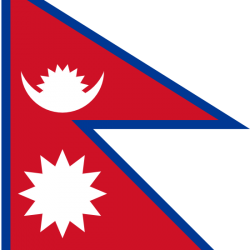
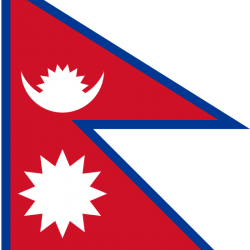
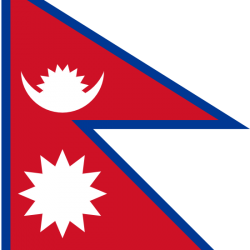
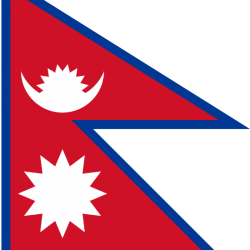
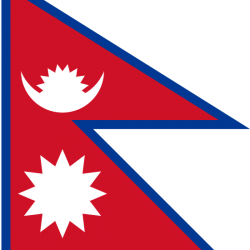
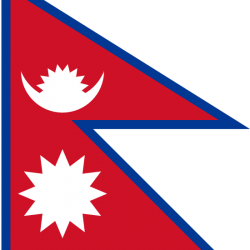
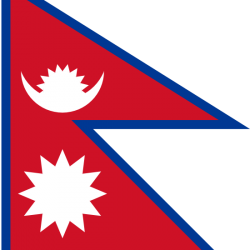
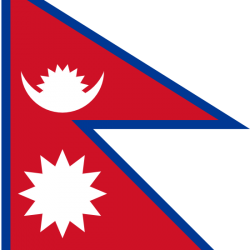
 We will not leak your personal information
We will not leak your personal information